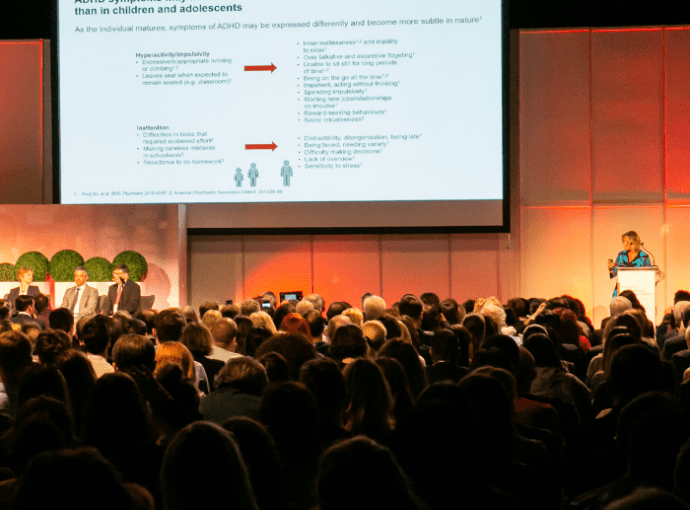Scientific Programme
EPA leadership and congress organisers are working together to build an exciting congress programme with an adapted format mindful of the current context.
Sign up for the congress newsletter to receive the latest updates about EPA 2022, including scientific programme announcements, registration rates, e-poster information, deadline reminders, and more.
Click on the button below to view the EPA 2022 Scientific Programme.
*The programme is subject to change. Updated 14 April 2022.
Core Programme
Implementing Alternatives to Coercion in Mental Health Care
Speaker: Prof. Silvana Galderisi, Italy
Psychedelic Psychiatry
Speaker: Prof. David Nutt, UK
Inclusive Perspectives of Reforms in Psychiatry: What did we Achieve and What Needs to be Done?
Speaker: Prof. Andreas Heinz, Germany
Free Sales of Cannabis Should be Made Legal
Pro
Speaker: TBC
Con
Speaker: Prof. Michael Krausz, Canada
Do Clinicians Need to Rethink Antipsychotic Maintenance Treatment?
Pro
Speaker: Prof. John Kane, US
Con
Speaker: Prof. Wim Veling, The Netherlands
Has Clinical Translation of Scientific Research been a Failure?
Pro
Speaker: Prof. Elisabeth Binder, Austria
Con
Speaker: Prof. Anthony David, UK
Psychiatric Symptoms of Long-Covid Syndrome: Pathophysiology and Treatment Options
Speaker: Dr. Marco Solmi, Italy
Digital Mental Health: Towards Personalised Care in Psychiatry
Speaker: Prof. Inez Myin-Germeys, Belgium
Transcultural Aspect of Mental Health Care
Speaker: Prof. Meryam Schouler-Ocak, Germany
A Once Malignant Malady: the Story of Schizophrenia and the Path to Prevention
Speaker: Prof. Jeffrey Lieberman, USA
Early Intervention Programmes in Psychosis
Speaker: Prof. Merete Nordentoft, Denmark
45 Years of Research on Psychotherapy for Depression: Lessons for the Future
Speaker: Prof. Pim Cuijpers, Netherlands
Current Innovations in Psychopharmacology
Speaker: Prof. Christoph Correll, USA
Sleep and Mental Disorders
Speaker: Prof. Thomas Pollmächer, Germany
OCD: New Breakthroughs
Dr. Cécile Hanon, France
Prof. Diego Palao Vidal, Spain
Improving OCD by Modulating Brain Circuits
Speaker: Dr. José Manuel Menchón, Spain
Feasibility and Acceptability of Transcranial Direct Current Stimulation in Obsessive Compulsive Disorder
Speaker: Prof. Naomi Finerberg, UK
The Latest Results of the ENIGMA-OCD Consortium: an Example of Powerful Worldwide Collaboration on Brain Imaging
Speaker: Prof. Odile van den Heuvel, The Netherlands
Deep Brain Stimulation in Patients with Severe Resistant OCD: 10 Years of Experience in Barcelona
Speaker: Dr. María del Pino Alonso Ortega, Spain
Impact of the COVID-19 Pandemic on Youth Mental Health
Prof. Andrea Fiorillo, Italy
Dr. Ozge Kilic, Turkey
Has Suicide Really Increased After the COVID-19 Pandemic?
Speaker: Prof. Danuta Wasserman, Sweden
Stress, Resilience and Psychiatric Morbidity in Youth at the Time of COVID-19
Speaker: Prof. Andrea Fiorillo, Italy
Increase in the Use of Alcohol and Other Substances in Adolescents During and After the COVID-19 Pandemic
Speaker: Prof. Geert Dom, Belgium
The Effects of the COVID-19 Pandemic on Mother-Infant Mental Health Relationship
Speaker: Prof. Judit Balázs, Hungary
The Impact of Racism and Discrimination on Mental Health of Ethnic Minorities
Prof. Meryam Schouler-Ocak, Germany
The Impact of Racism and Discrimination on the Mental Health of Refugees and Asylum Seekers
Speaker: Dr. Marianne Kastrup, Denmark
Racism, Discrimination, Otherism and Tribalism and Mental Health
Speaker: Prof. Dinesh Bhugra, UK
What do Health/Mental Health Professionals Have to do With Racial Discrimination?
Speaker: Dr. Levent Küey, Turkey
Multiple Discrimination and Its Consequences for the Mental Health of Ethnic Minorities
Speaker: Prof. Meryam Schouler-Ocak, Germany
Benefits and Goals of a Human Rights-Based Approach (HRBA) to Mental Health Care
Prof. Simavi Vahip, Turkey
Mr. Andre Decraene, Belgium
A Human Rights-Based Approach To Acute Mental Health Crisis Care
Speaker: Dr. Lieselotte Mahler, Germany
The Evidence Base For Psychiatric Support For Living Independently And Being Included In The Community
Speaker: Prof. Armida Mucci, Italy
Human Rights And Clinical Practice In The Treatment Of The Most Vulnerable
Speaker: Prof. Michael Krausz, Canada
Family and Service User Involvement in the implementation of a human rights-based approach to mental health care
Speaker: Ms. Katerina Nomidou, Greece
At the Heart of Eating Disorders: The Progress of Assessments Clinicians Should Know for Optimal Treatment and Clearer Prognosis
Prof. Philip Gorwood, France
Dr. Livia De Picker, Belgium
Continuous Glycaemia and Heart Rate Monitoring in Eating Disorders: From New Devices to Clinical Meanings
Speaker: Dr. Philibert Duriez, France
For Neurocognitions
Speaker: Prof. Fernando Fernandez-Aranda, Spain
For Personality Disorders
Speaker: Prof. Janet Treasure, UK
Anorexia Nervosa as a Metabo-Psychiatric Disorder – Consequences for Assessment and Treatment in Childhood and Adolescence.
Speaker: Prof. Beate Herpertz-Dahlmann, Germany
Best of 2021: Research that Advanced Psychiatry and Changed our Practice
Dr. Jan Wise, UK
Prof. Agata Szulc, Poland
Old Age Psychiatry
Speaker: Prof. Nicolas Hoertel, France
Forensic Psychiatry
Speaker: Prof. Birgit Völlm, Germany
Eating Disorders
Speaker: Prof. Janet Treasure, UK
Cannabis: Adolescent Use, Psychiatric Impact and Preventive Work
Session Chairs:
Prof. Geert Dom, Belgium
Prof. Colin Drummond, UK
Adolescent Cannabis Use, Cognition, Brain Health and Educational Outcomes: A Review of the Evidence
Speaker: Dr. Valentina Lorenzetti, Germany
Cannabis Induced Psychosis
Speaker: Prof. Jørgen G. Bramness, Norway
Cannabis Related Impact on Subcategories of Psychotic Symptoms
Speaker: Prof. Benjamin Rolland, France
Standard Units for Cannabis Dose: Why is it Important to Standardise Cannabis Dose for Drug Policy and How Can we Enhance its Place on the Public Health Agenda?
Speaker: Prof. Hugo López-Pelayo, Spain
On the Transitional Period from Pandemic Times Towards ‘New Normal’: Experiences and Challenges in Different European Countries
Session Chairs:
Prof. Jerzy Samochowiec, Poland
Prof. Simavi Vahip, Turkey
Practicing Psychiatry in the Transitional Period: Lessons Learnt and Issues of the Steps Towards the New Normal
Speaker: Prof Mohammed Al-Uzri, UK
Education and Training in Psychiatry: Challenges and Consequences of the Last Two Years, Future Perspectives and Actions Needed
Speaker: Prof. Koray Başar, Turkey
Impact of the Pandemic on Psychiatric Research and Publications
Speaker: Prof. Pavel Mohr, Czech Republic
Dealing with the Pandemic and After for Children and Adolescents, and their Families
Speaker: Prof. Gisele Apter, France
Etiology and Treatment of the Long Covid-19 Syndrome
Session Chairs:
Prof. Peter Falkai, Germany
Prof. Claudio Bassetti, Switzerland
The COVID-19 Infection/Pandemic (General Introduction)
Speaker: Prof. Josef Eberle, Germany
Psychiatric Complications (Including Long-Covid, Diagnosis and Treatment)
Speaker: Dr. Marco Solmi, Canada
Neurological Complications (Including Long-Covid, Diagnosis and Treatment)
Speaker: Prof. Elena Moro, France
Covid-19: Lessons for Mental and Brain Health
Speakers: Prof.Peter Falkai, Germany and Prof. Claudio Bassetti, Switzerland
Update on Resilience in Mental Health Diseases and Care Givers
Session Chairs:
Prof. Philip Gorwood, France
Prof. Christoph Steinebach, Switzerland
Promoting Resilience Through Evidence-based Practice in Cases of Childhood Trauma
Speaker: Dr. Eleni Karayianni, Cyprus
Resilience and Wellbeing in Mental Health Workforce: Why it Matters and How to Develop it
Speaker: Prof. Christoph Steinebach, Switzerland
Resilience Factors Preventing Schizophrenia in Ultra-high Risk Patients: Lessons from Genetics
Speaker: Dr. Boris Chaumette, France
Resilience and Coping Strategies of the General Population during the COVID-19 Pandemic
Speakers: Prof. Andrea Fiorillo, Italy
The Emergent Potential of Psychedelics for Treatment of Brain Disorders
Session Chairs:
Prof. Kim Kuypers, The Netherlands
Prof. David Nutt, UK
Safety, characterisation, and distinction of serotonergic psychedelics
Speaker: Prof. Friederike Holze, Switzerland
(Sub)acute and longer lasting effects of psychedelics on behaviors and their underlying biology
Speaker: Prof. Kim Kuypers, The Netherlands
Clinical trials with psilocybin in patients with major depression
Speaker: Prof. David Erritzøe, UK
Psychedelics and Emotions
Speakers: Prof. Sophia Armand, Denmark
Are Psychedelics Changing the Paradigm of the Treatments of Psychiatric Disorders? A dialogue between neuroscientists and clinicians
Session Chairs:
Prof. Philip Gorwood, France
Prof. Jean-Antoine Girault, France
Restoring Functional Circuits with Psychedelics
Speaker: Prof. David Olson, USA
Brain imaging psychedelic effects in depression
Speaker: Prof. David Nutt, UK
Psychedelics in Mood, Anxiety, and Substance-use Disorders: From Safety to Efficacy
Speaker: TBC
The Impact of Psychedelics on Cognitions and Emotions
Speakers: Prof. Kim Kuypers, The Netherlands
Human Rights and Mental Disorders: An Issue Worth Fighting for
Session Chairs:
Prof. Geert Dom, Belgium
Dr. Julian Beezhold, UK
The Involvement of Families in Mental Health Care – A Human Right!
Speaker: Mr. Andre Decraene, Belgium
Access to mental Health Services During a/the Pandemic: A Human Right?
Speaker: Ms Hilkka Kärkkäinen, Finland
Involuntary care: Abolish or Regulate? UN-CRPD versus European Convention on Human Rights
Speaker: Prof Geert Dom, Belgium
Recovery Oriented Services to Overcome Human Rights Violations in Mental Health Care
Speakers: Prof. Silvana Galderisi, Italy
‘Suicide-2022’: An Update Organised by the EPA-host Hungarian Psychiatric Association
Session Chairs:
Prof. Judit Balasz, Hungary
Prof. Danuta Wasserman, Sweden
Pathways to Suicidal Behaviour
Speaker: Prof. Katalin Szántó, USA
Covid-19 and Suicide in the World
Speaker: Prof. Danuta Wasserman, Sweden
(Nonsuicidal) Self-Injury
Speaker: Prof. Judit Balasz, Hungary
Suicidal Behaviour in Hungary
Speakers: Prof. Zoltán Rihmer, Hungary
The Development of Targeted Psychotherapeutic Interventions Addressing Specific Needs in Africa
Session Chairs:
Dr. Michael Odenwald, Germany
Dr. Christine Musyimi, Kenya
Development of a Mobile Phone Based Healthy Anger Management Intervention to Reduce Intimate Partner Violence in Kenya
Speaker: Dr. Christine Musyimi, Kenya
NETfacts – Addressing Trauma and Violence at the Community Level. Experiences from DRC
Speaker: Dr. Amani Chibashima, Germany
Preventing PTSD in the Aftermath of Childhood Sexual Abuse in Burundi
Speaker: Dr. Anselm Crombach, Germany
The Effects of Khat Use on Anti-TB Treatment – Ways Forward
Speakers: Dr. Matiwos Soboka, Germany
ECP Programme
EPA 2022 invites recent graduates to its specialist programme tailored to the needs of the Early Career Psychiatrist (ECP).
Click the button below to learn more.
EPA Educational Courses
The European Congress of Psychiatry will serve the educational mission of the EPA by providing high-quality education courses, covering all aspects of psychiatry. Each course is 3 hours long and will present advanced material on a chosen topic of practical relevance.
Click the button below to view the EPA 2022 selected Courses.
Session Descriptions
The EPA 2022 scientific programme will cover the latest developments in psychiatry, through state-of-the-art presentations, live moderation, discussions and more. Click below to view detailed descriptions of all the session formats on offer at the EPA Congress.
The European Congress of Psychiatry serves the educational mission of the EPA by providing high-quality EPA Courses, covering all aspects of psychiatry. Fees are charged separately for the courses. Each EPA Course is composed of two 90-minute sessions.
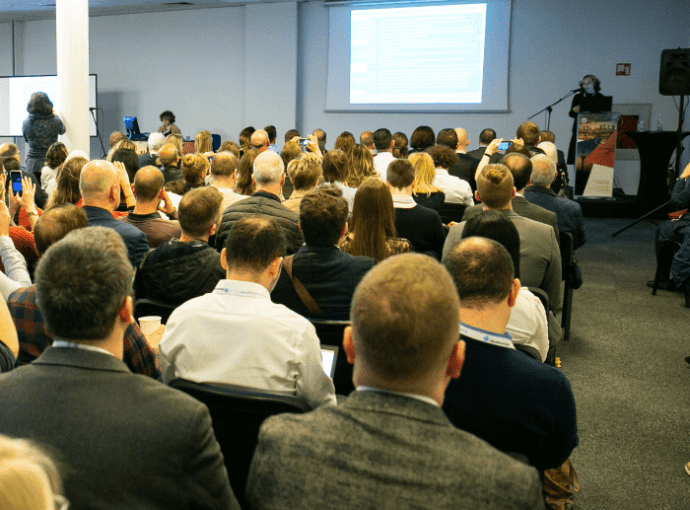
The State-of-the-Art lectures have a strong clinical focus, providing a complete update on significant aspects of current clinical treatments in European psychiatry. The State-of-the-Art lectures are delivered by top European or worldwide experts and last 45 minutes.

The Plenary lectures are mainly theoretical and research-oriented, with a strong scientific focus. These lectures are delivered by leading psychiatrists, scientists and other mental health professionals invited by the Scientific Programme Committee. They cover the major topics of the Congress theme.
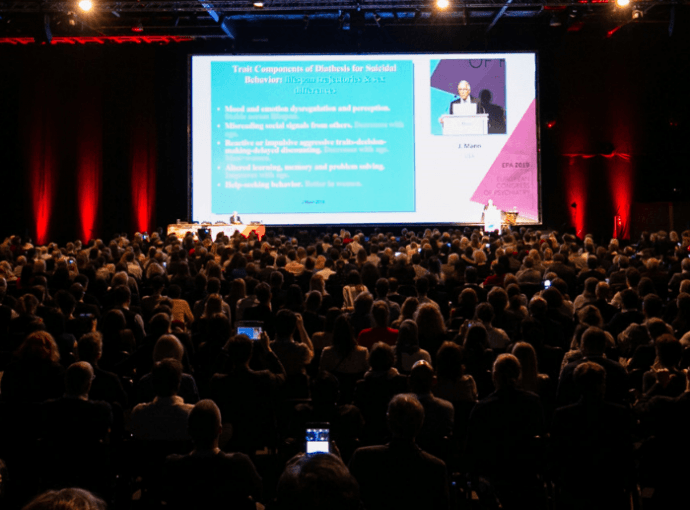
Debates offer a lively and fruitful discussion on controversial issues. A chairperson moderates the debate and the following discussion, while two speakers (proponent /opponent) offer and challenge opinions on “hot topics” for 30 minutes each. Participants may also be asked to interact by voting at the beginning and/or end of the session.
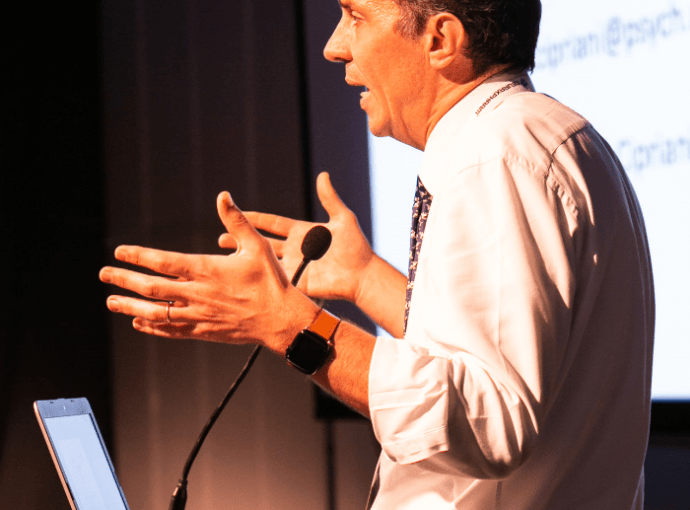
These 90-minute sessions, selected by the Scientific Programme Committee, focus on specific topics in psychiatry, representing several points of view. Each symposium includes four presentations by international speakers and offers an opportunity for discussion at the end.
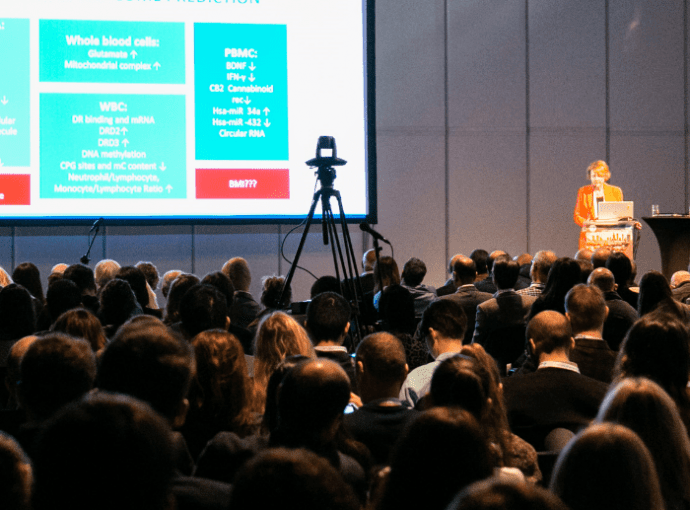
The Workshops are devoted to a specific topic and bring together experts in this field for an intensive discussion. These are 90-minute working sessions, with 30 minutes devoted to discussion and interactivity.
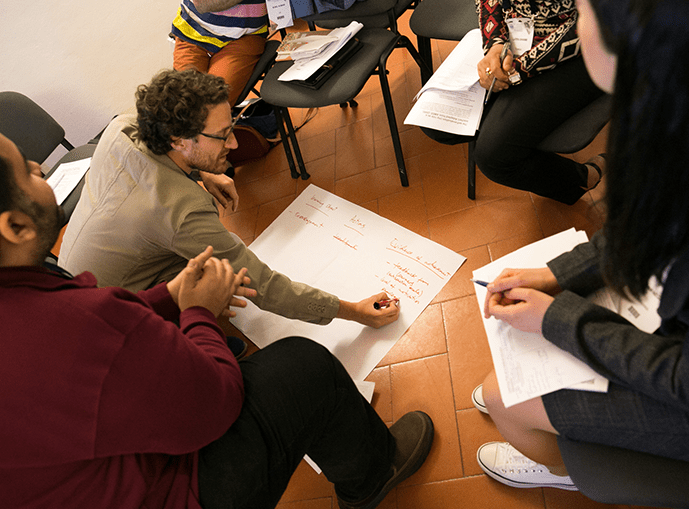
The EPA invites recent graduates to follow its specialist programme, which is tailored to the needs and interests of early career psychiatrists. The ECP Programme is composed of a Networking Evening and a special track of sessions throughout the Congress.
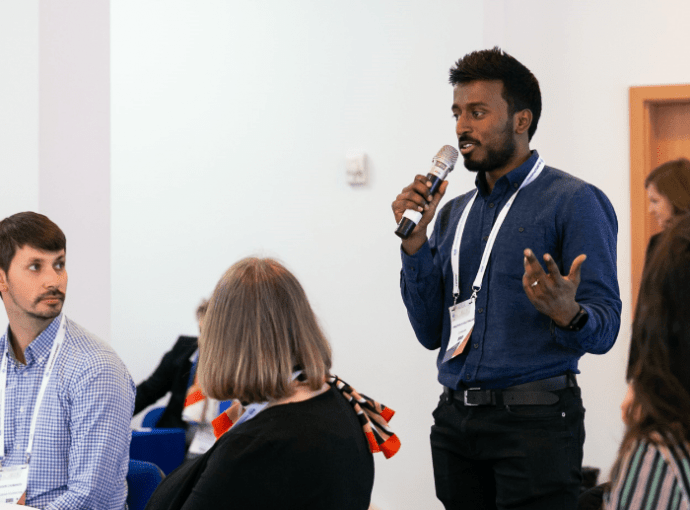
Ask the Experts sessions allow participants to meet in a small group with outstanding researchers and clinicians. The format is designed to facilitate informal discussions, allowing participants to present their questions and gain new perspectives. Sessions take place at round tables and are limited to a certain number of participants with advanced sign-up required.
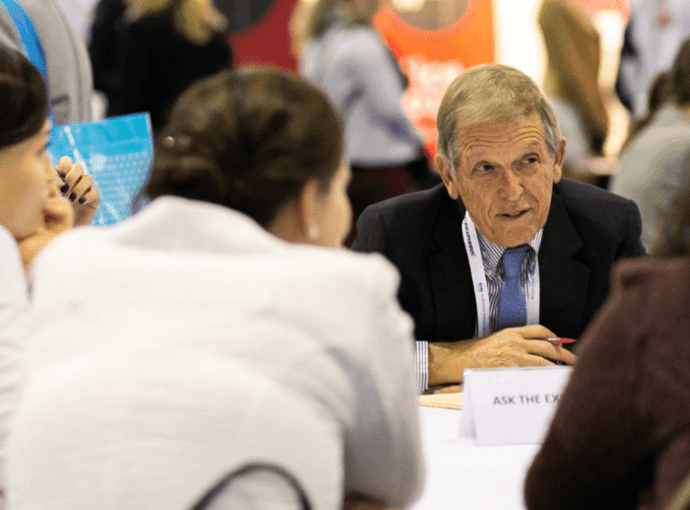
Authors are invited to submit abstracts, classified by topics. There is a limitation concerning the number of submissions per individual. Submitted abstracts are reviewed by the Scientific Programme Committee and scheduled as Oral Communications, e-Poster Presentations, or e-Poster Viewing.
Those abstracts scoring the highest will be allotted an Oral Communication. The author will have the opportunity to present their research in a dedicated session during the Congress.
All accepted abstracts whose authors attended the Congress are published in the European Psychiatry Digital Abstract Supplement during and following the Congress.
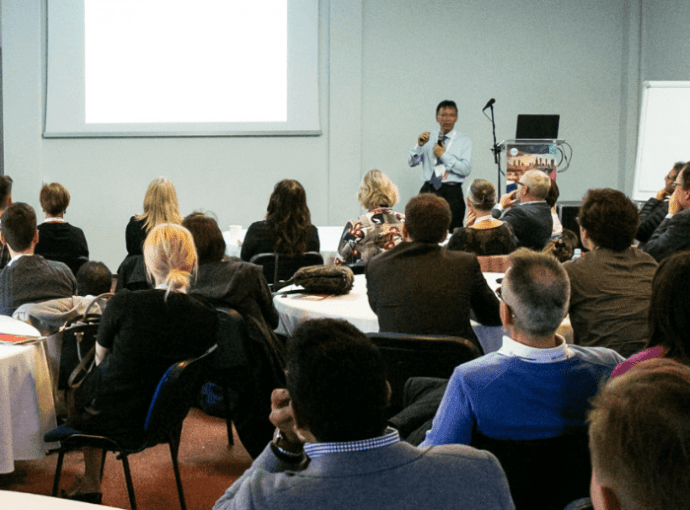
Authors of abstracts allotted to the second-highest category of scoring are invited to present their research findings or important ongoing research during an e-Poster Presentation, where they have around 3 minutes to present their e-Posters displayed on a digital screen.
All accepted abstracts whose authors attended the Congress are published in the European Psychiatry Digital Abstract Supplement during and following the Congress.

All authors of accepted abstracts will be able to view their poster on the congress website, app and on the digital screens onsite. The e-posters are accessible to all delegates throughout the Congress for individual viewing.
All accepted abstracts whose authors attended the Congress are published in the European Psychiatry Digital Abstract Supplement during and following the Congress.
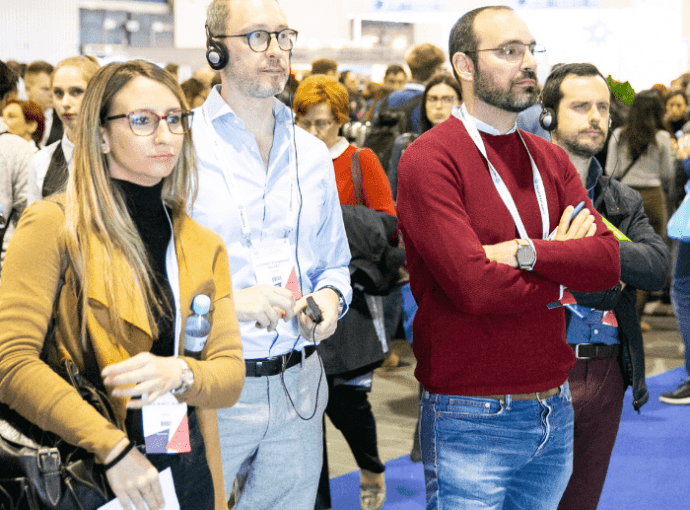
Satellite Symposia are organised by pharmaceutical companies in consultation with the Scientific Programme Committee. These sessions are fully integrated into the Congress, but are sessions entirely designed, produced and driven by the pharmaceutical industries by an unrestricted educational grant.
